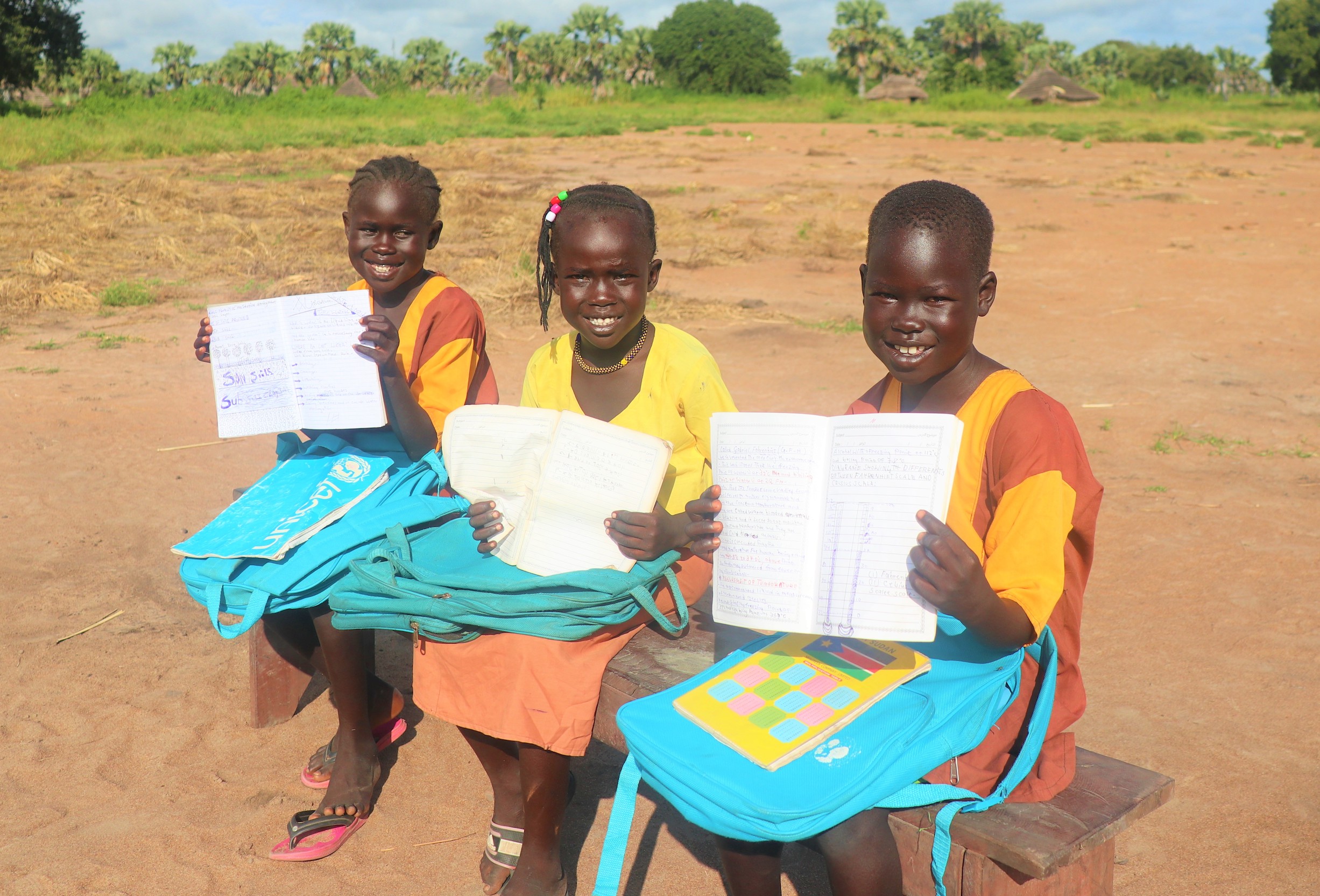COVID-19: Children in South Sudan adjust to a new way of learning

“We were just starting to learn how to count from one to 20 and read the alphabet when the headmaster announced the closure of school due to the outbreak of the COVID-19 pandemic,” Ajak shares with sadness.
Eight-year-old Ajak along with her older sister Achol, 10, and friend Abang, seven, did not understand what was going on when the government announced a lockdown in March 2020 that closed the schools and many public services. “It was not clear why we were asked to stay at home and how long it would take for us to come back to school,” she says.
World Vision, in partnership with Save the Children, Norwegian Refugee Council, Finn Church Aid, NGO Forum, and South Sudan’s Ministry of General Education, supports an estimated 4,991 children through the South Sudan Multi-Year Resilience Programme funded through the Education Cannot Wait project.

The project ensures that the schools as well as children are equipped with the necessary resources to adjust to the challenges posed by the Covid-19 pandemic while providing access to basic primary education, alternative education systems and secondary education in Tonj East and Tonj North counties in Warrap State.
Education is essential and through it, our country will be able to overcome most of the challenges it is facing right now.
The initiative also supports the construction of temporary learning spaces, provision of handwashing facilities, cash incentives for adolescent girls to complete secondary school and facemasks for teachers as the classes resumed. Ajak’s dream is to be a doctor. She says, “When I grow up, I want to work in the hospital and deliver free services to my country people”.
Achol adds, “I am glad the school has handwashing facilities to protect us from the COVID-19 pandemic. World Vision also taught us the prevention measures and how we can keep ourselves safe. I am grateful.”

Arkanjelo Ariik Akon, the headteacher of Ayakakat Primary School, explains, “Education is essential and through it, our country will be able to overcome most of the challenges it is facing right now. In this school, we make sure the pupils follow the coronavirus precautionary measures so the classes will not be stopped again.”
James Ring Ring, World Vision’s Education Project Manager in Warrap says, “We provided handwashing facilities and facemasks to help people safe against COVID-19. The measures will also ensure safety and unhindered access to schools.” He adds, “The project aims to provide children with access to quality education and empower them to have a better future, even help in South Sudan’s rebuilding efforts.”
World Vision’s Education Technical Advisor Lomoro Frank concludes, “The Education Cannot Wait project is flexible enough to support safe return of children to school. Despite COVID-19, there is great hope children will complete their course. The rest of the classes will resume in the first quarter of FY21 as planned by the National Ministry of education.”

Story and photos by Scovia Faida Charles Duku, Communications Coordinator